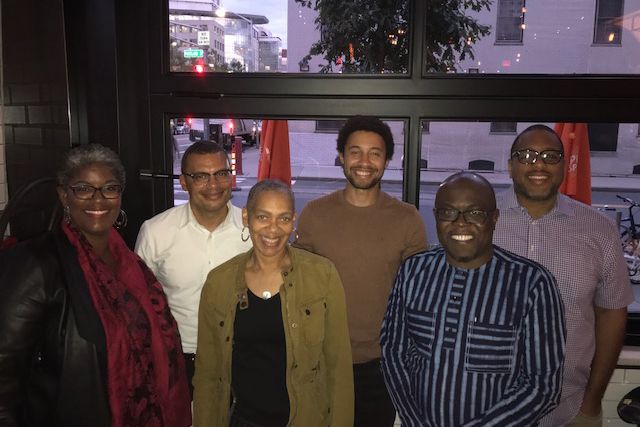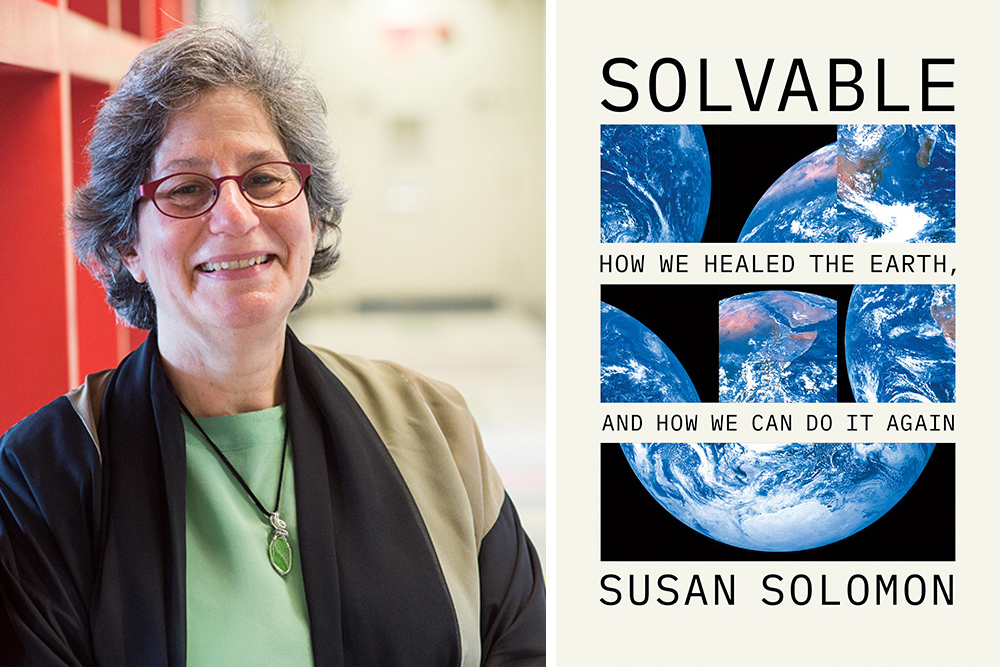Meet the 2019-20 MLK Visiting Professors and Scholars
Six scholar and professors are spending this academic year in engagement with the MIT community.
Founded in 1990, the Martin Luther King Jr. (MLK) Visiting Professors and Scholars Program honors the life and legacy of Martin Luther King by increasing the presence of, and recognizing the contributions of, underrepresented minority scholars at MIT. MLK Visiting Professors and Scholars enhance their scholarship through intellectual engagement with the MIT community and enrich the cultural, academic, and professional experience of students. The program hosts between four and eight scholars each year with financial and institutional support from the Office of the Provost and oversight from the Institute Community and Equity Office. Six scholars are visiting MIT this academic year as part of the program.
Kasso Okoudjou is returning for a second year as an MLK Visiting Professor in the Department of Mathematics. Originally from Benin, he moved to the United States in 1998 and earned a PhD in mathematics from Georgia Tech. Okoudjou joins MIT from the University of Maryland College Park, where he is a professor. His research interests include applied and pure harmonic analysis, especially time-frequency and time-scale analysis; frame theory; and analysis and differential equations on fractals. He is interested in broadening the participation of underrepresented minorities in (undergraduate) research in the mathematical sciences.
Matthew Schumaker joins MIT for another year in the Music and Theater Arts Section within the School of Humanities, Arts, and Social Sciences. Schumaker received his doctorate in music composition from the University of California at Berkeley. At MIT, he teaches a new course, 21M.380 (Composing for Solo Instrument and Live Electronics), a hands-on music technology composition seminar combining instrumental writing with real-time computer music. Additionally, The Radius Ensemble in Cambridge, Massachusetts has commissioned Schumaker to write a new piece of music that helps translate into music the vibrant, curved gestures and slashed markings in the abstract landscapes of celebrated Ethiopian-born painter Julie Mehretu.
Jamie Macbeth is visiting from Smith College, where he is an assistant professor in computer science. He received his PhD in computer science from University of California at Los Angeles. Although this is his first year as an MLK Visiting Scholar, he is not new to MIT, since he has been a visiting scientist since 2017. He is hosted by the MIT Computer Science and Artificial Intelligence Laboratory (CSAIL). Macbeth’s research is focused on building and studying intelligent computing systems that demonstrate a human-like capability for in-depth understanding and production of natural language, and thus can achieve richer interactions with human users. He is especially keen on building systems that decompose the meaning of language into complex conceptual structures that reflect humans’ embodied cognition, memory, imagery and knowledge about social situations.
Ben McDonald has been a postdoc in the Department of Chemistry since 2018 and is now an MLK Visiting Scholar. McDonald received his PhD in synthetic organic chemistry from Northwestern University. His research focused on the total synthesis of flavonolignan natural products and the development of reverse-polarity carbon-carbon bond forming reactions. As a member of the department’s Chemistry Alliance for Inclusion and Diversity, he is focused on advancing diversity, equity and inclusion efforts. One of the initiatives he seeks to establish is a summer research program, which recruits talented future scientists from underrepresented backgrounds.
Tina Opie is an associate professor in the Management Division at Babson College. Opie obtained her PhD in management (with a concentration in organizational behavior) from New York University’s Stern School of Business. As an MLK Visiting Scholar in MIT Sloan School of Management, along with access to MIT’s Behavioral Research Lab, she is conducting research to develop the construct of Shared Sisterhood. “Shared Sisterhood examines how high-quality relationships (e.g., relationships characterized by trust, emotional vulnerability) between black, white, and Latinx women at work facilitate workplace inclusion and equity.” Though her work has a specific focus, people of all genders and racioethnic backgrounds can be “sisters” and can contribute to fostering a more inclusive work environment. Opie established Opie Consulting Group, a diversity-and-inclusion consultancy that incorporates Shared Sisterhood in creating inclusive workplaces.
Rhonda Williams, an MLK Visiting Professor hosted by the Department of History, joins MIT from Vanderbilt University, where she was recently appointed the John L. Seigenthaler Chair in American History. She is the founder of the Social Justice Institute at Case Western Reserve University. Her essay titled “Black Women Who Educate for Justice and Put Their Time, Lives, and Spirits on the Line” was recently published in “Black Women And Social Justice Education: Legacies and Lessons” (2019, SUNY Press). On Oct. 25, Williams will deliver a social justice-related performance-lecture called “The Things That Divide Us: Meditations” at MIT. In spring 2020, she will facilitate a social justice workshop for students, faculty and staff.
For more information about our scholars and the program, visit mlkscholars.mit.edu.





